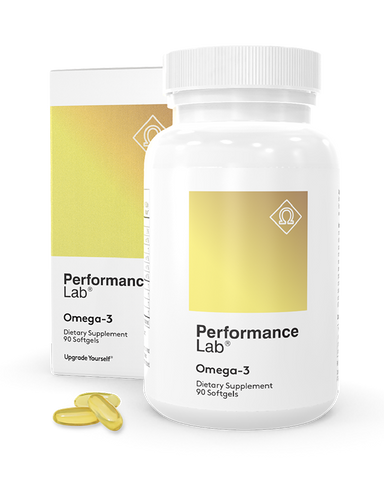We’ve all been there before. Whether it’s after a night out with friends or a bad night's sleep, brain fog is real and it can be a real pain in the butt.
You can’t focus, you can’t think clearly, your attention is all over the place, your memory isn’t working well, and you just feel downright off.While there’s no official diagnosis for brain fog, it’s a super common “condition” that a good chunk of the population experiences. And depending on the severity of it, it can cause some major interference with daily activities. But the good news is that getting rid of brain fog and keeping it away is relatively easy. Once you start to understand what’s causing it, you can work towards digging at the root and eliminating it once and for all.
But in the meantime, we have a super stack that will kick your brain fog to the curb and leave you with mental clarity, sharpness, and laser focus like you’ve never experienced before.We’re talking about the best supplements for a foggy brain.Ready to check em’ out?
What Is Brain Fog?
Like we said, brain fog isn’t an official condition, so there are no diagnostic criteria to confirm that someone has it.
More often than not, it’s a group of presenting symptoms that happen as a result of several causes, which we’ll talk about below.For a lot of people who experience brain fog, they feel like they’re unable to have a sharp memory or clear focus; you feel kind of like your head is out to space and there’s cotton candy filling the noggin that once had intellectual brain tissue; you just can’t think clearly no matter how hard you try. The lights are on, but nobody is home. Some people may also experience headaches, impaired vision, or even nausea.Generally speaking, brain fog is characterized by symptoms like:
- Mental confusion
- Lack of attention and focus
- Poor concentration
- Impaired memory
- Fuzzy thinking
But while there is no clear definition of diagnosis of what brain fog is, there are some underlying causes that can contribute to its development.
The Most Common Causes Of Brain Fog
Stress
We all experience stress. Sometimes it’s in the form of a deadline at work or a fight with a partner, while other times it’s stress from an intense training session.
Short-term stress can be beneficial for the body, but long-term chronic stress is a whole different story. Chronic stress means continued activation of the sympathetic (fight-or-flight) nervous system and elevated serum levels of your stress hormones—cortisol, epinephrine, and norepinephrine, diverting energy away from non-essential functions to prepare your body for battle, hence the term “fight-or-flight”. Studies suggest that glucocorticoid- and stress-related cognitive impairments involving memory are likely associated with changes in the hippocampus, while stress-induced catecholamine effects on emotions and memory may result from changes to the amygdala 1.
Research also shows that short-term daily stress can increase levels of inflammation and trigger negative moods, both of which are linked to fatigue and reductions in attentional resources that can occur with acute stress 2. In the long-term, chronic stress has been associated with poorer cognitive function, accelerated cognitive decline, and an increased risk of dementia 3.
The thing with chronic stress is that it drastically increases the risk of what researchers call "biological wear and tear”, disrupting endocrine function and causing inflammation, both of which impair neural structure and cognitive performance. While supplements like adaptogens, B vitamins, and minerals are beneficial for supporting the stress response, lifestyle modifications like deep breathing, exercise, meditation, and the like are also beneficial for reducing stress and improving brain health.
Sleep Deprivation
Poor sleep hygiene is an underlying cause for several chronic diseases long-term, but short-term is can have some major impact on cognitive function. For anyone that’s ever missed sleep, you can attest to the fact that your brain just doesn’t operate the same. That’s because getting less than the recommended 7-9 hours of quality sleep disrupts your body’s internal clock (i.e. your circadian rhythm), which throws off certain body functions.
But in terms of why you’re not getting enough sleep, there are a few things that can contribute to morning (and sometimes all day) brain fog:Blue light: The light emitted from devices (phones, tablets, TVs, laptops, etc.) interferes hugely with the body’s secretion of melatonin, your sleep hormone. It suppresses the release of melatonin and increases cortisol release, which causes you to feel alert as opposed to drowsy.
Studies show that continuous exposure to artificial light disturbs sleep patterns and cognitive performance, including memory, mood, attention, sleep-wake cycle, and alertness 4. Blue light has also been shown to decrease active memory and reaction time.
Brain detox: The other thing that poor sleep impairs is your brain's ability to detoxify. The glymphatic system—the system of blood vessels in the body that removes waste from the brain and CNS—is most active during sleep, so not getting enough rest during the night can impair this process and leave you feeling mentally dull 5.
Hormones
Hormonal fluctuations can be a pain for a lot of things, but especially for women, shifts in levels of estrogen and progesterone during that time of the month, pregnancy, or menopause can lead to poor memory and cause short-term cognitive impairment.
One study found that 60% of women going through menopause have difficulty concentrating during menopause and complain about forgetfulness and brain fog 6, 7.
Diet & Nutrient Deficiencies
Your body requires a delicate balance of nutrients to function optimally and when those nutrients aren’t present in specific amounts, it can cause a host of issues, including brain fog.
Vitamin B12 is a critical nutrient that’s needed for red blood cell formation and maintenance of the nervous system, which is why low B12 levels often impair energy and cause fatigue.
But it’s not just B12. Deficiency of any of the B vitamins is known to cause emotional disturbances, confusion, memory impairment, cognitive decline, behavior changes, and general cognitive impairment 8. While those are the four most common reasons for the onset of brain fog and poor cognitive function, certain medications and underlying medical conditions can also interfere with brain function and can result in many of the symptoms of brain fog. And aside from implementing better nutrition and lifestyle habits, one of the other ways to enhance brain function and eliminate brain fog is through supplementation.
Careful combinations of nutrients can be a powerful tool for giving you clearer, sharper, and better brainpower to help push you through even the toughest mental challenges.
The 4 Best Supplements For Beating Brain Fog
Performance Lab Caffeine+

Performance Lab Caffeine+ is an ultramodern low-dose stimulant supplement that offers the same cognitive benefits as traditional stimulants with none of the nasty side effects.
Unlike most other energy supplements that megadose caffeine causing your body to go into overdrive, Caffeine+ promotes balanced, optimized, and productive caffeine stimulation. It’s a smarter and cleaner stimulant with Natural Caffeine 50 mg + Suntheanine® 100 mg delivering greater dosing precision, fewer side effects, and superior performance-tuned stimulation.
Caffeine Plus' ultramodern design also helps restore caffeine-depleted brain chemicals with Ajipure® L-Tyrosine + NutriGenesis® B-Complex to support healthy recovery from all caffeine-driven activities.What you’re getting:
- NutriGenesis® Caffeine Balance B-Complex (B2, B6, B9, B12)
- Natural Caffeine 50mg
- Suntheanine® L-Theanine 100mg
- Ajipure® L-Tyrosine 250mg
Performance Lab® Caffeine+ improves caffeine’s performance-enhancing effects with an innovative dual-stack formula designed for cleaner, calmer stimulation.
Performance Lab Omega-3

The link between omega-3 fatty acids and brain function is nothing new. DHA is a major constituent of the brain and, as the old saying goes, “treat like with like”, which makes getting enough EPA and DHA in your diet non-negotiable for sharper cognitive function.Unlike traditional fish oil supplements that can be of dodgy origin and contaminated with toxins, heavy metals, and other chemicals, Performance Lab® Omega-3 supplies safe, clean, and sustainable DHA+EPA omega-3s directly from the source in all aquatic ecosystems—algae.
Performance Lab® Omega-3 with life’s™OMEGA algal oil supplies high-potency DHA+EPA benefits without fish oil drawbacks in the optimal 2:1 DHA to EPA ratio for more balanced immune responses.
It’s also easy to take with no fishy smell, fishy aftertaste, or related gastric distress. All of these benefits are delivered in NutriGels®—the world’s first vegan, carrageenan-free soft gels.
Performance Lab Mind

If you want sharper cognitive performance, you have to give your brain what it needs to function at the most optimal levels possible.
Performance Lab Mind goes above and beyond traditional cognitive supplements to deliver the ultimate nootropic for brainpower, brain health, and burnout resistance. It’s the only nootropic that enhances cognition and helps your brain recover from intense mental exertion, keeping you sharp, up to speed, and functioning at your best no matter the situation.
Performance Lab® Mind enhances performance-driven cognitive functions like focus, speed, energy, memory, motivation, and more. It’s the most powerful nootropic supplement designed to help you bounce back faster by fighting stress burnout, all while supporting long-term brain health.What you’re getting:
- Cognizin® Citicoline 250mg
- Sharp-PS® Green Phosphatidylserine 100mg
- Ajipure® L-Tyrosine 250mg
- Maritime Pine Bark Extract 75mg
Mind is a revolutionary, stim-free brain formula designed to promote peak human performance under pressure.
Combining multi-tasking nootropic ingredients in advanced forms for optimal neuronutrient delivery to enhance full spectrum cognitive function, promote healthy recovery, and support sharper bounce-back.
Performance Lab MCT

When it comes to sharpening cognitive function, fats are your friend. They’re the basis of brain structure and are required for optimal cognition. But not just any old fats. MCT is a top-of-the-line fat that’s absorbed rapidly and immediately converted to energy for bigger and better brainpower.
MCT is a fast-acting metabolic fuel that supports peak mind-body performance. While other MCT products derived from GMO coconuts are chemically treated to provide a pure product, Performance Lab MCT is the ultimate upgrade.
Using only C8+C10 MCTs sourced from 100% organic non-GMO coconuts, cold-extracted with hexane-free technology, and 3X distilled for purity, it delivers faster, more convenient mental energy and enhanced results in the most convenient possible format. With MCT, you can say goodbye to brain fog forever.
Final Thoughts
Brain fog is something we all deal with at times, but it doesn’t have to be frequent.
Aside from ensuring you’re practicing good lifestyle habits—proper sleep, stress management, a good diet, regular exercise, etc.—adding in cognitive boosters to your supplement stack can be a game-changer.
Not only does it curb brain fog, but it elevates your cognitive performance like no other supplements can.
References
- BS McEwen, RM Sapolsky. Stress and cognitive function. Curr Opin Neurobiol. 1995;5(2):205-216.
- R Dantzer, JC O'Connor, GG Freund, RW Johnson, KW Kelley. From inflammation to sickness and depression: when the immune system subjugates the brain. Nat Rev Neurosci. 2008;9(1):46-56.
- SB Scott, JE Graham-Engeland, CG Engeland, et al. The Effects of Stress on Cognitive Aging, Physiology and Emotion (ESCAPE) Project. BMC Psychiatry. 2015;15:146.
- N Bansal, NRup Prakash, J Singh Randhawa, P Kalra. Effects of Blue Light on Cognitive Performance. IRJET. 2017;4(6):2434-2442.
- NA Jessen, AS Munk, I Lundgaard, M Nedergaard. The Glymphatic System: A Beginner's Guide. Neurochem Res. 2015;40(12):2583-2599.
- R Thurston. Cognition and the menopausal transition: Is perception reality? Menopause. 2013; 20(12):1231-1232.
- PM Maki, VW Henderson. Cognition and the menopause transition. Menopause. 2016;23(7):803-805.
- DO Kennedy. B Vitamins and the Brain: Mechanisms, Dose and Efficacy--A Review. Nutrients. 2016;8(2):68.















